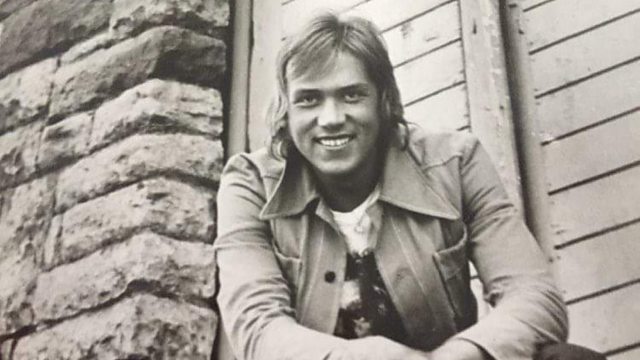Estonia's singing revolution
In 1991 Estonians regained their independence after decades of Soviet occupation â not with guns or tanks but with songs. TĂ”nis MĂ€gi became the voice of the âSinging Revolutionâ.
The Estonian rock musician TÔnis MÀgi once attracted huge crowds across the USSR with a string of disco hits and a song glorifying the 1980 Olympic Games. He was a poster boy for clean cut Soviet youth with his blond hair and cheeky smile.
But in 1987 TĂ”nis returned to his native Estonia to write his own songs, in his own language. Times were changing. Mikhail Gorbachevâs glasnost or openness policy allowed Estonians to talk about things which had been taboo for decades. TĂ”nis tells Lucy Ash that he could smell freedom in the air.
Like its Baltic neighbours, Lativa and Lithuania, Estonia was independent between the world wars but suffered devastating losses when it was invaded by Stalin then by Hitler's troops and then reconquered by the Red Army.
In the tiny country of 1.3 million, many resented the Russians and longed to escape from Communist rule. People worried that their language and culture were disappearing and they wanted to promote Estonian nationhood, particularly through music. With his rock anthem Koit (Dawn) and other songs, TÔnis became the voice of a generation of Estonians, the voice of the Singing Revolution.
Producer: Lucy Ash
Translator: Tiina Wilder
Photo: TÔnis MÀgi in 1987
Last on
More episodes
Previous
Next
Broadcasts
- Fri 15 Jan 2021 08:50GMT±«Óătv World Service
- Fri 15 Jan 2021 12:50GMT±«Óătv World Service
- Fri 15 Jan 2021 18:50GMT±«Óătv World Service except East and Southern Africa & West and Central Africa
- Fri 15 Jan 2021 23:50GMT±«Óătv World Service East and Southern Africa & West and Central Africa only
- Sat 16 Jan 2021 03:50GMT±«Óătv World Service except Australasia
Podcast
-
![]()
Witness History
History as told by the people who were there


